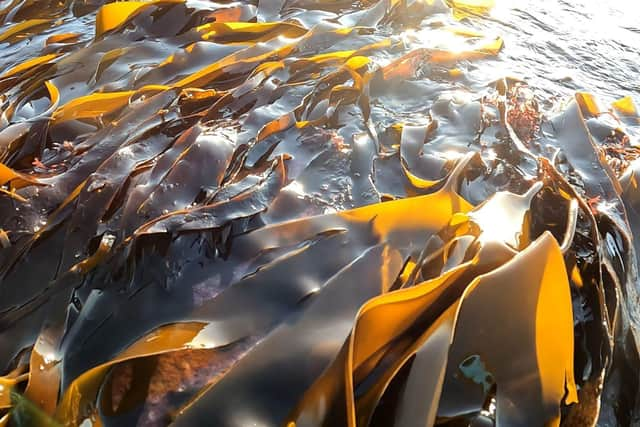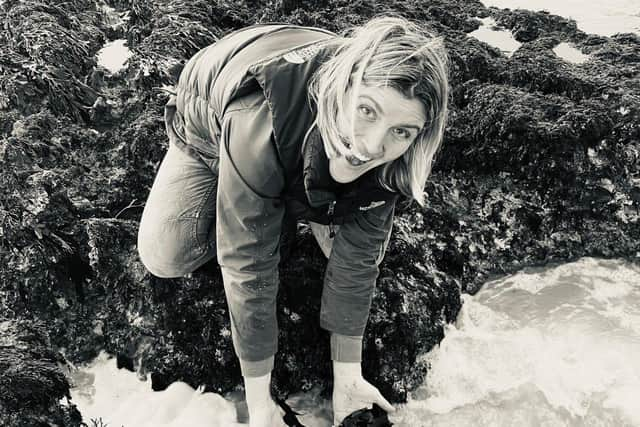A look at the Sussex Kelp Restoration Project one year on
This article contains affiliate links. We may earn a small commission on items purchased through this article, but that does not affect our editorial judgement.
and live on Freeview channel 276
And the Sussex Kelp Restoration Project officially set to work.
One year on Sally Ashby, Sussex Kelp Lead at Sussex Wildlife Trust, said: “Over the past year we have been conducting various surveys to understand the impact of the removal of trawling from this area, mapping and monitoring the seabed and the areas of kelp that remain as well as the marine biodiversity.
Advertisement
Hide AdAdvertisement
Hide Ad“We are using cutting edge technology to help us do this, from satellite images to underwater drones as well as divers sampling areas of kelp. The divers are helping us with genetic analysis of the kelp itself but also taking eDNA samples to assess the biodiversity. eDNA is environmental DNA that is found in the water and can give a list of all the species that are present.


“It’s amazing the technology we have available to assist in studying a complex and dynamic marine environment.”
The Sussex Kelp Restoration Project came through the work of the Sussex IFCA who proposed a Nearshore Trawling Byelaw to exclude bottom-towed trawling from an area of just over 300km² of the Sussex nearshore seabed.
Sally said: “Once the byelaw was approved in March 2021 and the Sussex Seabed was given the chance to recover we were able to form the Sussex Kelp Restoration Project and monitor and map the changes in the seabed and associated marine life over time.”
Advertisement
Hide AdAdvertisement
Hide Ad

What has surprised Sally during the study is how degraded the marine ecosystem is.
She said: “The impacts of decades of industrial scale fishing is really shocking. Early indications show that nature is incredibly resilient if given the chance to recover but we can’t keep pushing things to the brink of collapse.”
The project is set to continue but Sally says this ‘depends on funding and people power’.
She added: “This project has the potential to hugely benefit future generations, not least in terms of mitigating climate change as the ocean plays a key role in maintaining a stable climate but only if we can allow it to function naturally.
Advertisement
Hide AdAdvertisement
Hide Ad“This project is pioneering that shift towards restoring ecosystems at scale, to effectively re-wild our seas and build a future that is truly sustainable.
“We need to give back that which we have ultimately taken from the younger generations and in many cases from other nations historically, that is true environmental justice and a moral duty in my opinion.”
The collaborating organisations include: the Sussex IFCA (Inshore Fisheries and Conservation Authority), Big Wave Productions, Blue Marine Foundation, Zoological Society London as well as local authorities like Adur & Worthing Councils, the University of Brighton and UCL.
For the latest breaking news where you live in Sussex, follow us on Twitter @Sussex_World and like us on Facebook @SussexWorldUK
